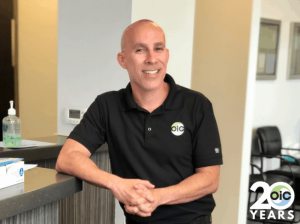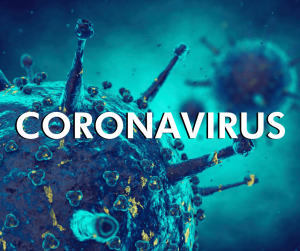What Is HPV?
- What is HPV?
- How do I know if I have HPV?
- How is HPV diagnosed?
- If I have HPV, am I going to get cancer?
- Can HPV be cured?
- How is HPV prevented?
HPV stands for human papillomavirus, the most common sexually transmitted disease in the U.S. The illness currently affects 79 million HPV sufferers, many in their late teens and early 20s. One reason for its rapid spread is that many patients are unaware that they have it and unknowingly transmit the disease to others.
How is this possible? Many patients with HPV are asymptomatic, which means they do not experience symptoms of discomfort from the illness. Because of this, many doctors recommend regular testing among social individuals to curb the spread of the disease.

What Is HPV?
There are more than 200 kinds of human papillomaviruses. You may have heard about sexually transmitted HPVs, which patients can contract through vaginal, oral, or anal sex. Certain strains of HPV can cause warts that lead to cancer. Other HPV strains don’t cause any physical damage or symptoms at all.
HPV stems from the papillomaviridae family of viruses. Patients can become infected by more than one type of these viruses at a time, and more than 40 types of HPVs are transmitted through sexual contact, infecting the genitals and anus within the skin or mucous membranes. If left untreated, these forms of the virus can turn cancerous. Of the 200 HPVs that we know of, about 14 place you at a higher risk of developing cancer. Out of the strains that can cause cancer, HPV16 and HPV18 account for 70% of cases.

How Do I Know If I Have HPV?
Most people who have sex carry some form of HPV without showing symptoms. Most of the 200 HPV viruses are harmless and will go away on their own. However, in some cases, you may develop warts on your genitals or other parts of the body.
Genital warts can show up anywhere from within a week of contracting the virus to years after you had sex with someone infected with HPV. The person you received the virus from may not have had symptoms of HPV and infected you without knowing it. For women, HPV genital warts typically appear on the vulva, anus, cervix, or within the vagina. In men, genital warts appear around the anus, penis, or scrotum.
HPV can also cause common warts on the hands or fingers as well as plantar warts on the balls of your feet or heels.

How Is HPV Diagnosed?
A doctor may be able to diagnose HPV by examining your genital warts. If warts are not present, your physician may use other forms of testing to diagnose the disease:
- Acetic Acid Test (doctors apply a vinegar solution to the genitals to improve the visibility of flat warts that you may not normally notice)
- Pap Test (doctors collect cells from the vagina or cervix to look for abnormalities)
- HPV DNA Test (cells taken from the cervix are examined for high-risk HPV cells)
Normally, a woman’s Pap test is part of her annual wellness exam. However, not all Pap tests identify HPV directly. Instead, a Pap test is an excellent tool to spot very early changes in cervical cells that may become cancerous. If you are over 30 years old and have regular Pap tests, your doctor may still want to test you for HPV.

If I have HPV, am I Going to Get Cancer?
Having an HPV diagnosis does not mean you will develop cancer. While most cervical cancers are caused by HPV, it may take 20 years for cancer to develop after an HPV infection. Your increased risk is the reason why doctors recommend regular Pap screens to detect precancerous changes in the cervix.
There is a link between HPV and cancer for both men and women. However, a healthy immune system can often suppress an HPV infection to prevent cancer cells from developing. Where doctors become concerned is if you have a long-lasting HPV infection from one of the 14 viruses linked to cancer. These viruses can turn into abnormal cells called squamous cell carcinomas, or adenocarcinomas. They can occur in the throat, tongue, anus, penis, vagina, cervix, and vulva.
In the U.S., high-risk HPV infections result in 3% of all the cancers diagnosed in women and 2% of all the cancers in men each year. The Centers for Disease Control & Prevention (CDC) reports that between 2015 and 2019 (the latest data available), approximately 47,199 new HPV-related cancers occurred in the U.S.
Of that number, 26,177 were women and 21,022 were men. Cervical cancers were the most common HPV-related cancer in women. Oropharyngeal cancer (throat cancer) was more common in men.

Can HPV Be Cured?
There is no cure for HPV. Most of the time, HPV has no symptoms and is not a concern. However, in a small number of cases, doctors must be more vigilant and track abnormal cell activity that can lead to cancer.
Your doctor may recommend a colposcopy—a procedure involving a specialized magnifying lens that allows the doctor to look closely at the skin of the vulva, vagina, and cervix for precancerous changes in these areas. While the disease does not have a cure, symptoms can be. Genital warts can be treated with salicylic or trichloroacetic acid, imiquimod, or podofilox cream to remove them.
If the doctor finds you have a cancerous HPV viral strain, it is vital that you keep up with regular exams and check-ins. Oftentimes, doctors take a wait-and-see approach to detect cell changes that indicate a cancerous form of HPV. Even if a cancerous HPV strain is present, it may not lead to cancer. Sometimes the cell changes will heal on their own.

How Is HPV Prevented?
HPV can be prevented with the HPV vaccine, which protects against strains of HPV that cause cancers and genital warts. The latest HPV vaccine is Gardasil 9, which is recommended for children and adults, aged nine through 45 years.
You can still receive the vaccine even if you tested positive for HPV, have an abnormal pap smear, or develop genital warts. The HPV vaccine will not treat these conditions or cure already active HPV. However, it will protect you from HPV types 6, 11,18, 31, 33, 45, 52, and 58.
You can also prevent HPV through abstinence from sex entirely or by limiting the number of sexual partners you have. Using condoms for sexual encounters can lower your risks, as well.
For women, having regular pap smears is an excellent preventative measure to catch abnormal cells early before they turn cancerous.
The Orlando Immunology Center is Central Florida’s comprehensive wellness center for sexually active adults. We offer comprehensive STD screening and preventative treatments to keep individuals like you safe from the spread of viral illnesses.
Call in today to learn more about our services and how we can help.
More Articles
Dr. DeJesus Recognized by Orlando Magazine
For the 5th consecutive year, Dr. DeJesus has been recognized by his peers in Orlando Magazine for his work as medical director at Orlando Immunology Center. Dr. DeJesus is a graduate from the University of Puerto Rico, School of Medicine. He completed his Internal Medicine training and Infectious Disease fellowship at the Medical College of…
Read MoreJoin OIC at the 2015 AIDS Walk Orlando
Orlando Immunology Center is pleased to announce that we will again be sponsoring a team at this year’s 2015 AIDS Walk Orlando. If you are interested in joining our team or donating to this worthwhile cause, please let us know. Saturday, March 28, 2015 In Florida, 15% of all new HIV infections reported among females…
Read MoreOIC Wins Wave Award for Favorite Local Healthcare Professional
The Orlando Immunology Center (OIC) announced today they have received the Central Florida/Orlando 2015 Watermark Awards for Variety and Excellence (WAVE) Award for favorite local healthcare professional. “We see this as a huge honor and will continue to do everything in our power to help patients from all walks of life be healthy, happy and…
Read MoreBest of Luck on Your New Adventure
Best of Luck, Love Your Family We’re a family. And just like every family, we go through triumph and tragedy together – sometimes both in the same day. Today is one of those days as we wish someone we love best of luck on their new adventure. Omar Marquez, LPN, CCRC, one of our Clinical Research Coordinators,…
Read MoreWendy Reflects on Her 20 Amazing Research Years at OIC
“Incredible progress” – Wendy reflects on how much has changed in her 20 years of amazing research at OIC but adds “I’m staying until we find a cure for HIV.” Every field sees change over time, but not as much as the field of HIV. Twenty years ago there were few medications with many side effects.…
Read MoreEverything You Need To Know for Free Leaders of Color Training
Are you a person of color living with HIV and want to make a difference? Do you want to be a part of ending HIV in Orlando? Are ready to serve as a leader? Then this free leaders of color training is for you! Where: Heart of Florida United Way, 1940 Traylor Blvd., Orlando, FL 32804 When: July…
Read MoreMassive 500 Percent Increase in Prep Use; New Research
There’s been a massive 500 percent increase in PrEP. But is that enough to end HIV? New research shows a massive 500 percent increase in PrEP use to prevent HIV. During 2014 to 2017, several key aspects of HIV prevention dramatically increased. Which is great news! But these improvements were not across all groups. Moreover, only about one third…
Read MoreWhy Preventive Medical Care Matters to You
We only have one life! So live your happiest, healthiest life through prevention! What is preventive medical care? Preventive medical care is any medical service that will help prevent an emergency or chronic condition. “I’m active and feel great – I don’t need a doctor!” That’s the entire purpose! To keep you that way! It promotes an…
Read MoreHow to Easily Get Medically Prepared for a Hurricane
Getting medically prepared for a hurricane is easier than you think. But it could be even more important than your typical hurricane prep routine. Hurricanes are erratic, powerful and destructive forces of nature. In addition, they can rapidly grow stronger. Or even decrease in strength but stall bringing wind and rain for extended periods of…
Read MoreOIC COVID-19 Response
During this most difficult time, we at OIC strive to continue to take the best care of you and all the health needs of our patients. Due to the severity of the situation involving the Coronavirus (COVID-19), we have had to implement many (temporary) changes in the best interest and the safety of both our…
Read MoreFrom SOCIAL to PHYSICAL Distance
SARS-CoV-2 (SARS-2), the virus that causes COVID-19, spreads from person to person through respiratory droplets produced from an infected person, even if that person does not know he/she is already infected. Most transmissions occur during very close contact with an infected person or when an infected person coughs or sneezes around you. A six-feet parameter…
Read MoreCOVID-19 Basic Immune Response
Just for clarification: SARS-2 is the virus that causes COVID-19. The current COVID-19 PCR test measures viral RNA. It does not measure our immune response to the virus. Viral RNA is only found in blood with active viral infection (or for a short period of time after recovery). In fact, in theory, we should get…
Read MoreInterim Guidance for COVID-19 and Persons with HIV – Updated: March 20, 2020
This interim guidance reviews special considerations for persons with HIV and their health care providers in the United States regarding COVID-19. Information and data on COVID-19 are rapidly evolving. This guidance includes general information to consider. Clinicians should refer to updated sources for more specific recommendations regarding COVID-19. Guidance for all Persons with HIV In…
Read More











